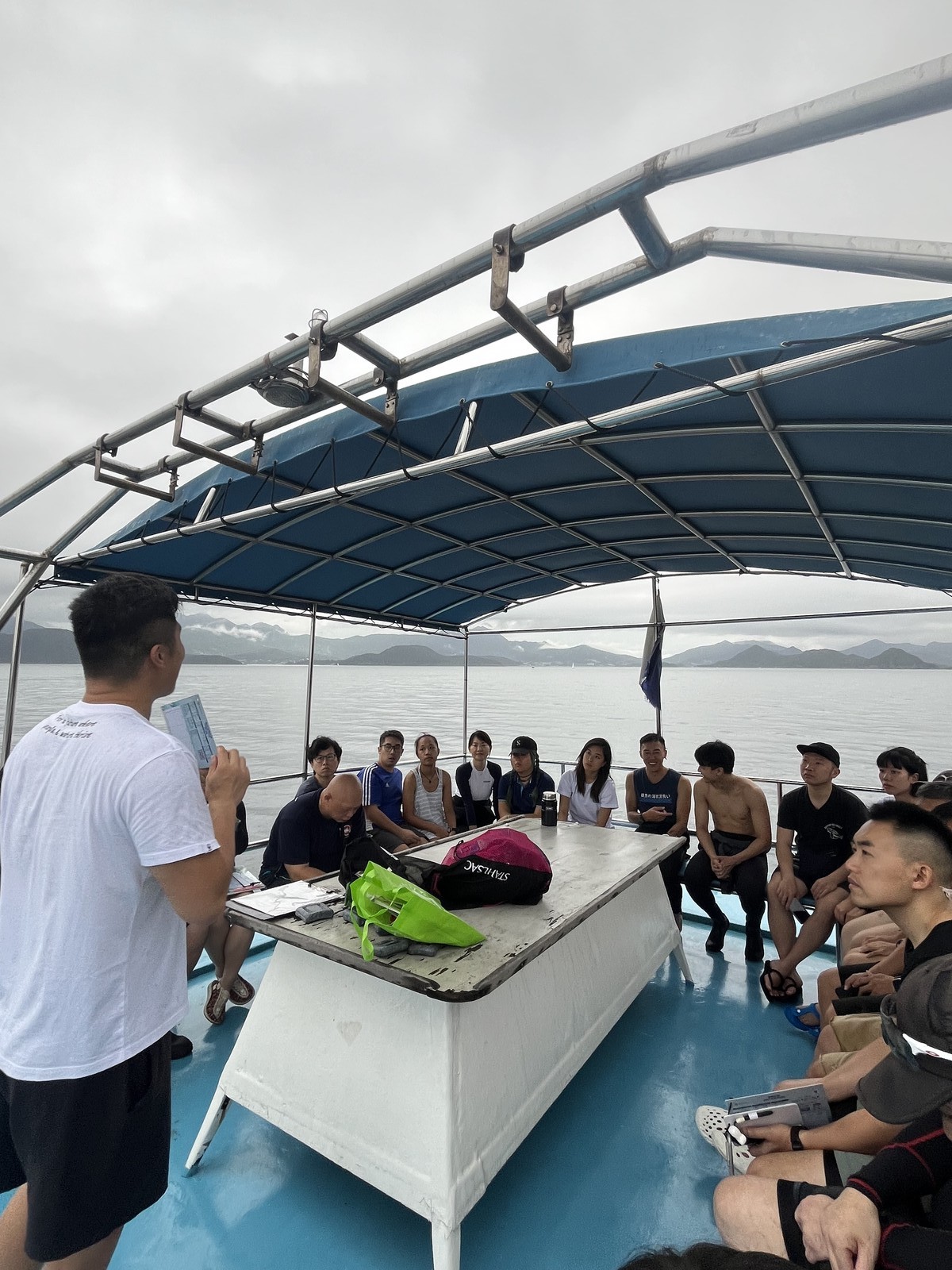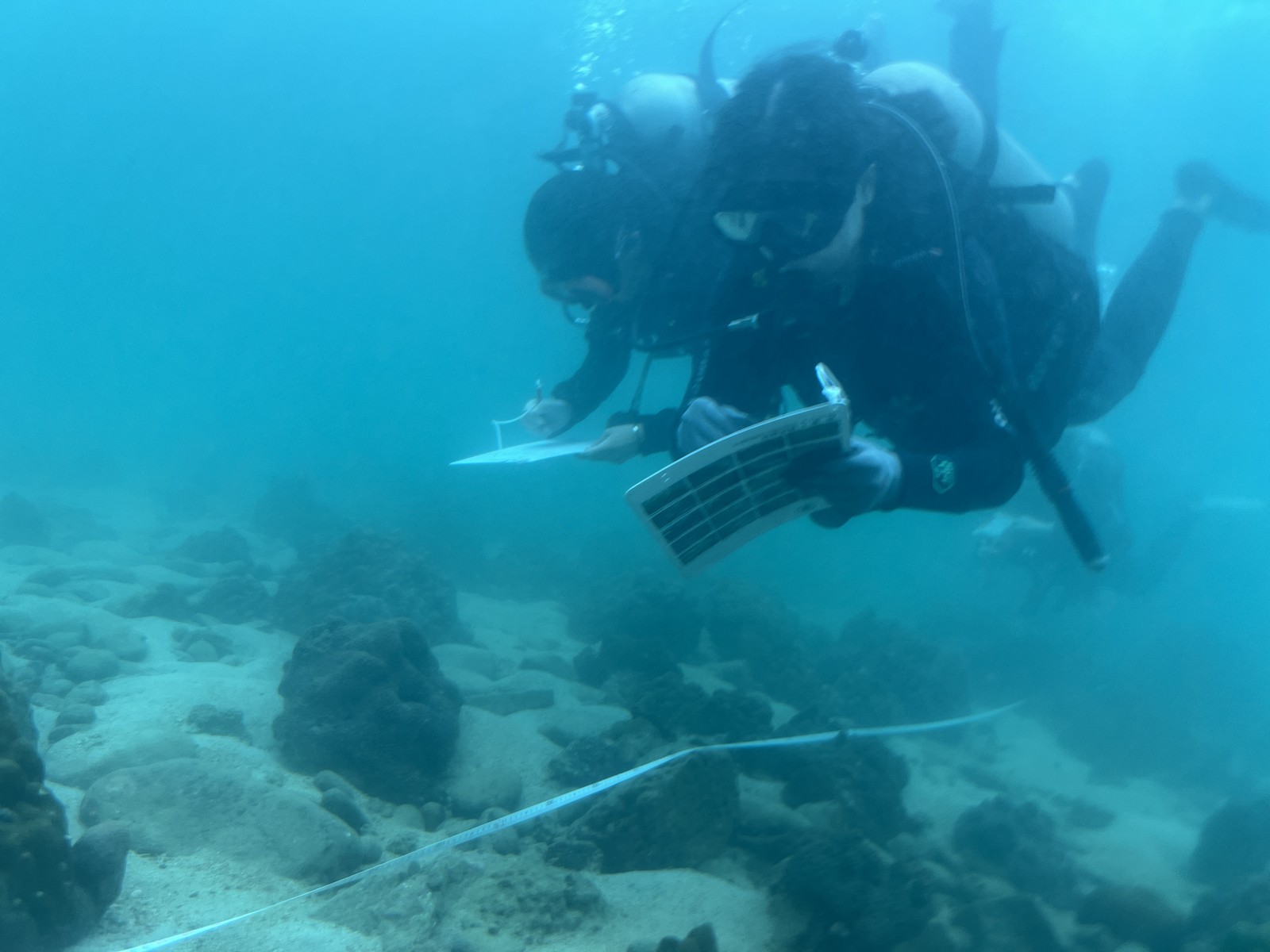The “Environment and Conservation Fund Turning the Tides – Underwater Surveys, Clean-ups and Beyond” (Turning the Tides) project empowers local divers communities to actively play a part in improving the marine environment. Through citizen science, divers gather data on ocean health, help uncover the scale of marine litter and deepen their knowledge. The project reflects a growing movement to protect Hong Kong’s marine ecosystems through teamwork and collaboration.
Spearheaded by WWF-Hong Kong, Turning the Tides works to safeguard our waters via the active participation of local communities. The project’s main focus areas are addressing marine litter pollution, restoring coral ecosystems and engaging divers in hands-on conservation work.
During the project’s first year, 23 trained citizen scientists led more than 50 “Reef Check” teams. Together, they completed the comprehensive Ocean Health Survey, which provides an updated snapshot of the current state of marine litter in Hong Kong’s marine environment. The divers were also trained further in citizen science techniques, giving them tools to make individual contributions to restoration works of marine habitats.
The Ocean Health Survey covered 30 significant coral areas in Hong Kong’s eastern and north-eastern waters, focusing on identifying the extent of marine litter and its impact on coral and marine life. The data collected provides crucial insights into the impact of marine litter on marine ecosystems – highlighting both the severity of the problem and the urgent need for collective action.
Of the 286 individual marine litter items recorded, more than 60% were plastics – persistent and dangerous ocean pollutants. Floating debris, such as plastic bottles and plastic utensils, was particularly prevalent. Alarmingly, 25% of the litter was found either suspended in the water or actively interacting with marine animals and corals, further heightening risks to marine biodiversity. The findings clearly highlight the pervasive extent of marine pollution and the direct threat it poses to local ecosystems, including coral communities which are already under pressure due to climate change and other environmental stressors.
The survey also reinforces the importance of citizen science. By involving local diving communities in the data collection process, Turning the Tides gathers valuable scientific insights and fosters a sense of collective responsibility. The data gathered has given WWF-Hong Kong the tools to better advocate for marine conservation policies, develop effective solutions and engage the community in hands-on action to tackle marine pollution and preserve Hong Kong’s marine biodiversity.
The Ocean Health Survey training provided divers with an easy yet systematic way to survey marine litter and restore the marine environment. Kai Kai Cho, one of the project’s citizen scientists, shares that, “This event allowed me to revisit what I knew and taught me more about coral ecology, the reasons for restoring coral and how to conduct marine litter surveys.” Kai Kai also noted how the organisers adapted to dynamic situations, postponing restoration efforts during a period of coral bleaching to respect nature’s limits: “Carrying out activities based on ocean health reflects the core values of the project – respecting and protecting our marine ecosystems.”
Mr Keith Kei from the Reef Check Foundation-Hong Kong is another key Turning the Tides contributor. With over 30 years of diving experience, Keith is a firsthand witness to the decline in Hong Kong’s coral and fish populations. “Large corals have become much rarer, coral bleaching has occurred more frequently, and more marine litter has appeared on the sea bed,” he says. Keith emphasises how the Ocean Health Survey gave divers wide-ranging marine litter survey tools and methods, enriching both data collection and ocean health understanding. “This initiative gave divers deeper insights into marine litter and the knowledge to take more precise action for conservation,” he explains.
These insights highlight the critical role of citizen scientists – their commitment and passion reflect a shared hope for a healthier ocean, where future generations of divers can continue to explore and protect the delicate balance of marine life.

More than 50 diving teams participated in surveys, collecting valuable data on marine litter and its impact on ocean health

The Ocean Health Survey training gave divers new ways to survey marine litter and contribute to coral restoration

The project offers divers comprehensive citizen science tools andtechniques to support conservation efforts